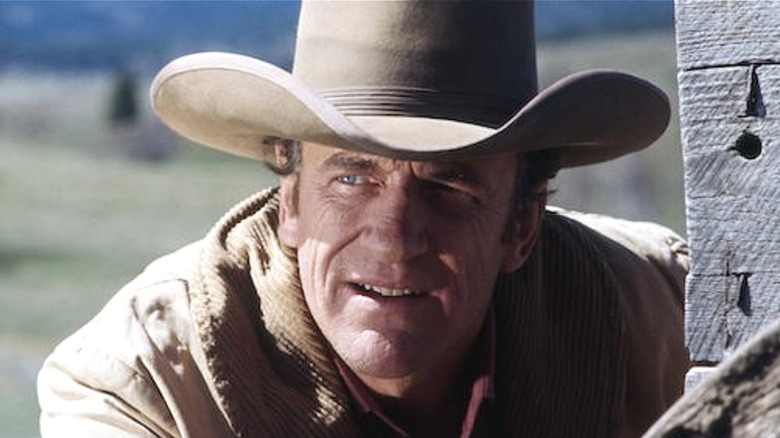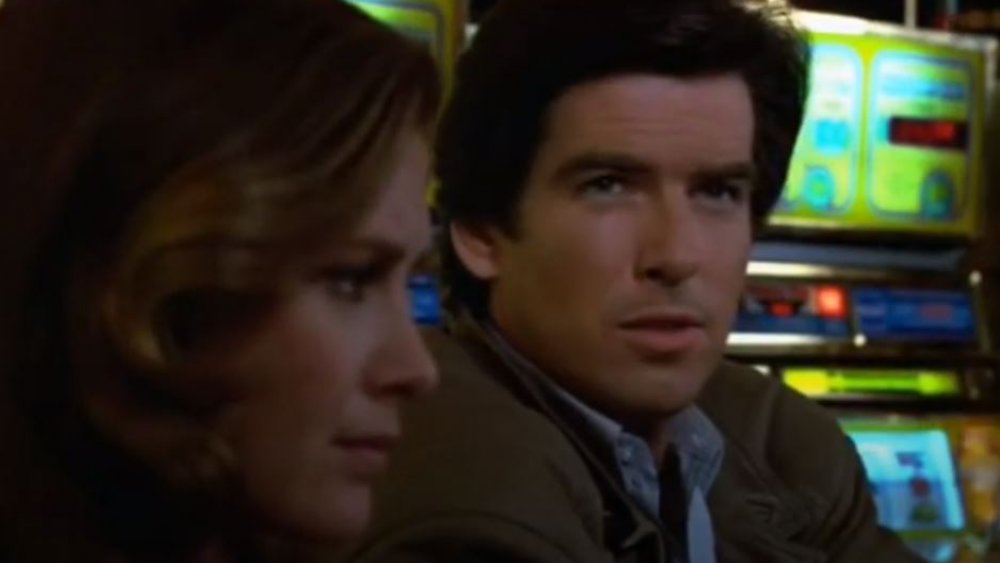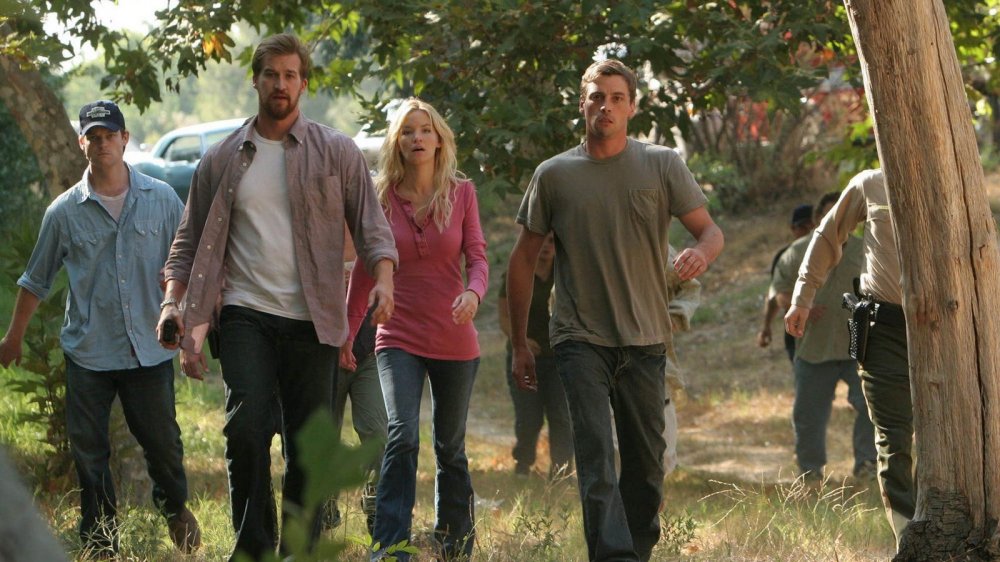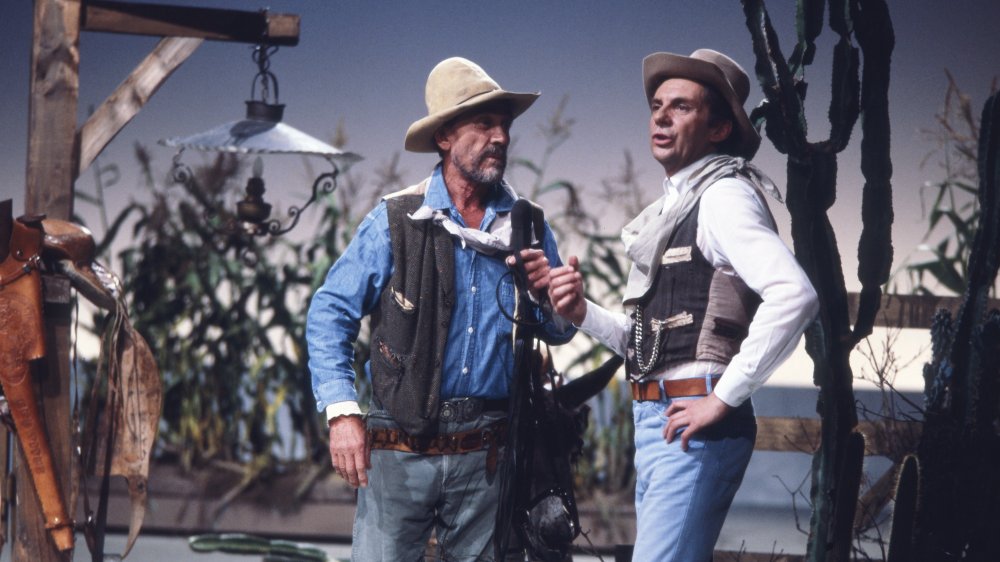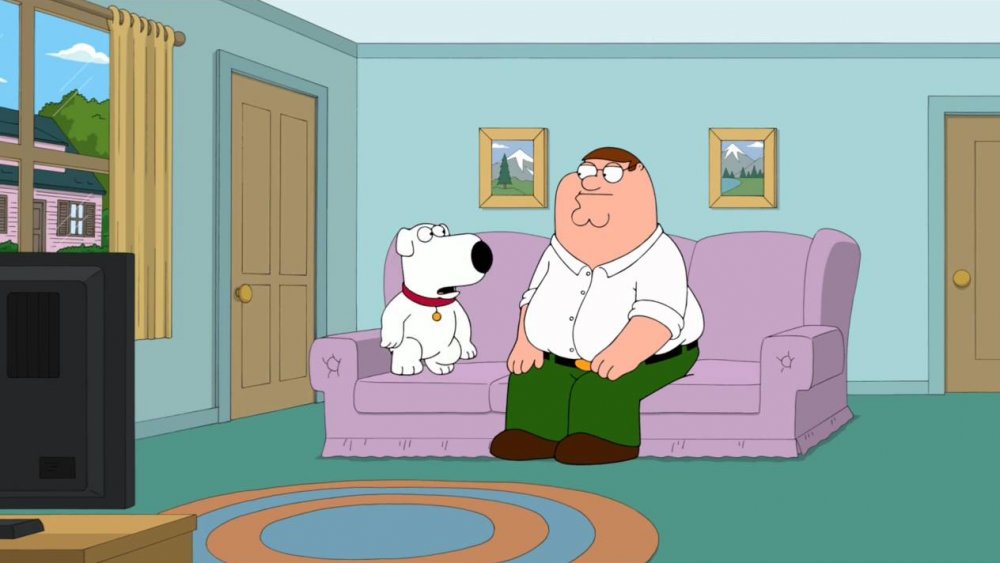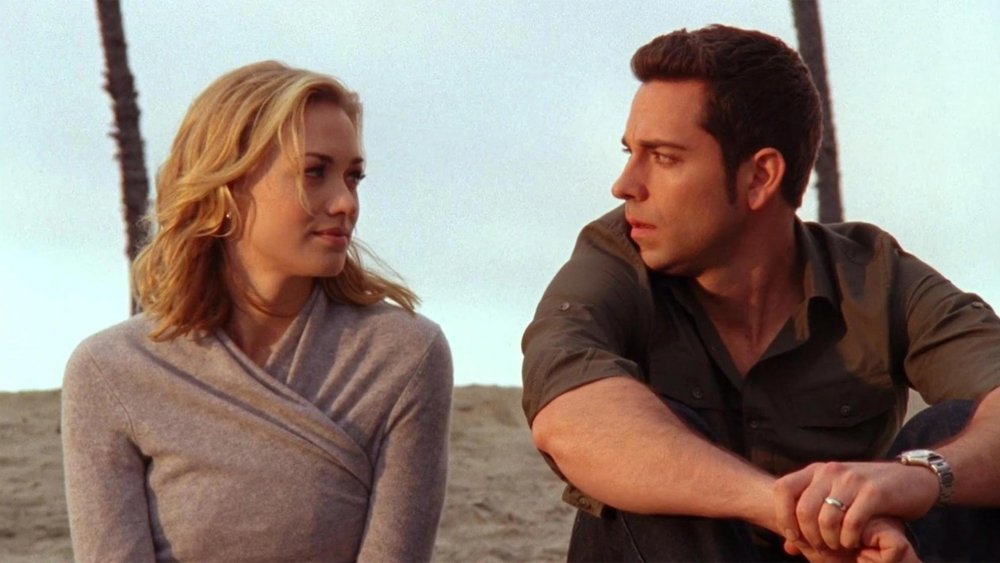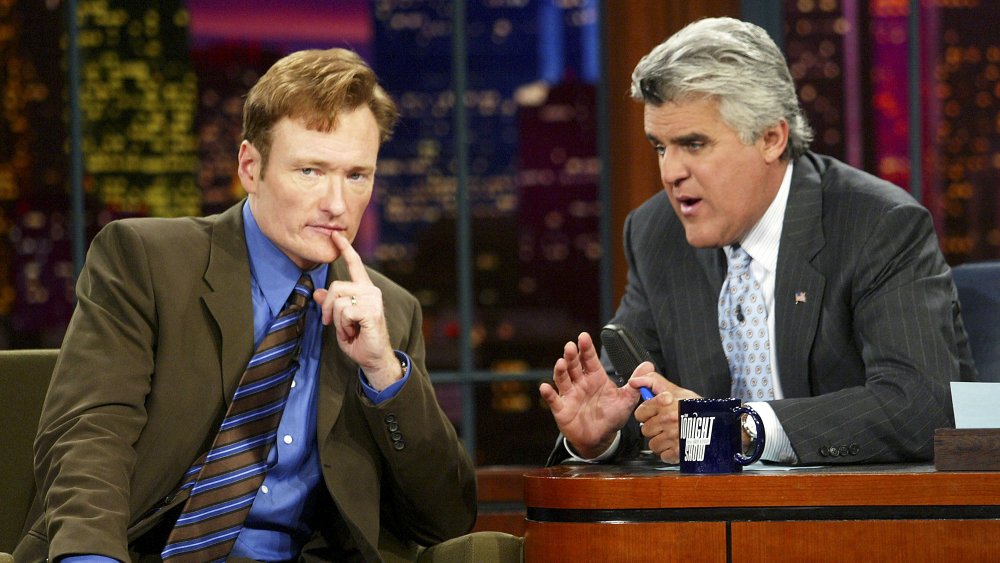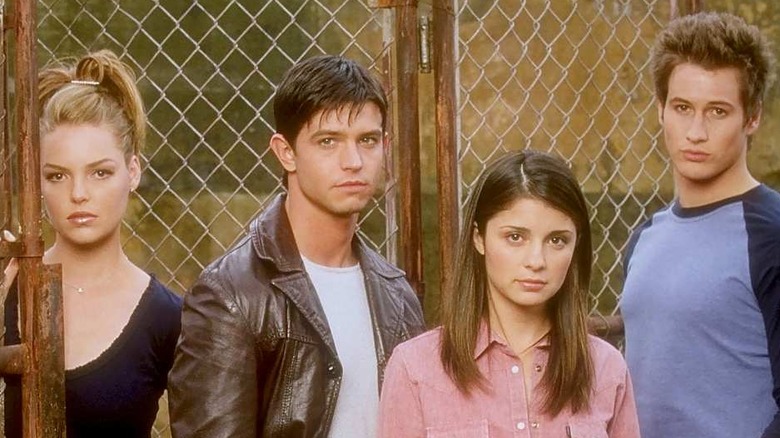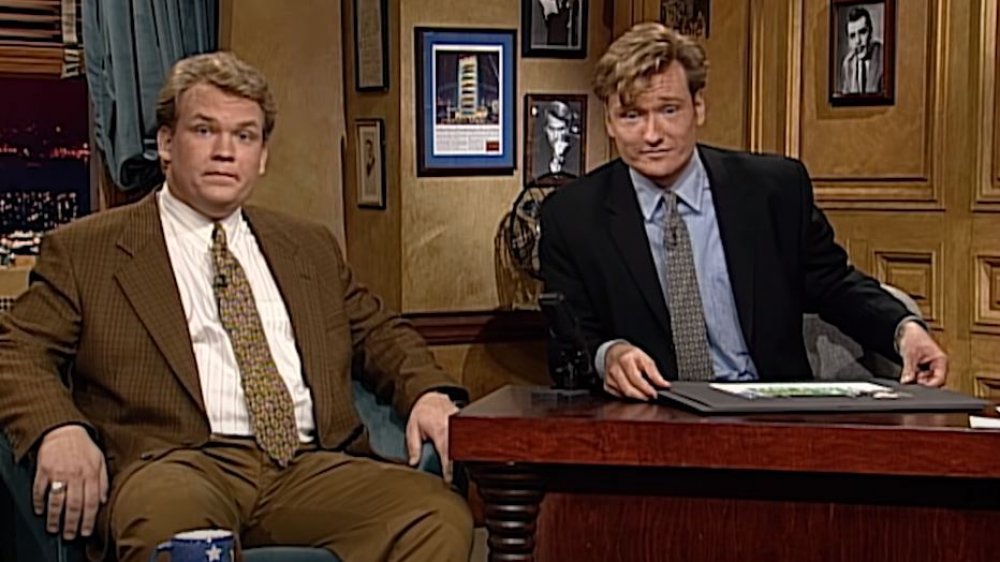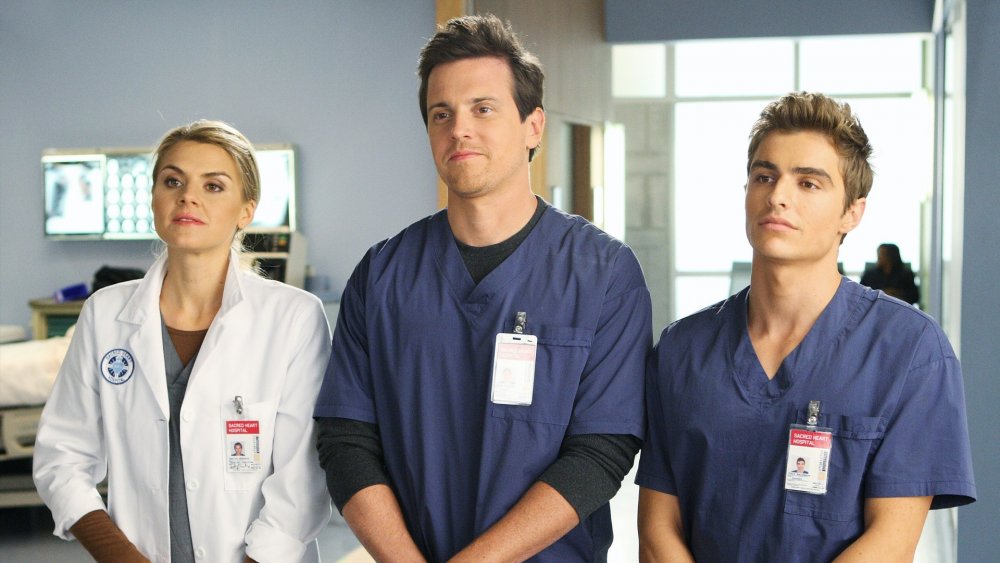The Strangest Reasons Shows Were Renewed
A television show's renewal is typically a straightforward thing: Good ratings, good cast, boom — here's a new contract! Sure, there are bubble shows that get a surprise renewal, and shocking cancellations have definitely been known to happen. Normally, however, things progress in a way fans understand, even if these decisions are based on Nielsen metrics to which the public isn't privy. Nothing special, nothing to report on, no story.
We're not here to talk about those times, though — we're here to talk about the times when shows got renewed for weird reasons. Who needs ratings when you can get shamed out of cancellation by a political body? Why go quietly into that good night when rumors about one of your stars makes a show too profitable to can? Sometimes, fans even take the power into their own hands and ensure their beloved show's future themselves. We're not just talking about letter writing campaigns or online petitions — that's too pedestrian. We're talking about mailing things to confused network executives and organizing special events with major brands. Who needs ratings when you have these stories? These are the outright strangest ways shows have been brought back from the brink.
Bond rumors kept Remington Steele alive
Pierce Brosnan first came to wide attention as the title character on Remington Steele. The show follows a female detective who hires a fake male supervisor in order to get clients. Remington is a suave former thief with a wardrobe full of nice suits — it's easy to see how Brosnan got James Bond out of this role. He would have gotten it sooner, too, if not for that meddling renewal.
Bond producer Albert "Cubby" Broccoli had his eyes on Brosnan for years, and almost had him in 1986. Moore was stepping down from the iconic role, and Remington Steele was slipping in the ratings. The show was officially canceled on May 15th, 1986 ... but the network had a 60-day window to change their mind. Almost exactly at the same time, reports emerged that Brosnan had signed a multi-picture deal to play Bond. These rumors fueled Remington Steele's rise in the ratings. This, combined with fan protests, changed executives' minds. On the 59th day of the window, NBC decided to renew Remington Steele and Brosnan was forced to return.
Bond producers didn't have time to waste, so they quickly replaced Brosnan with Timothy Dalton, who made two movies as the super spy. Remington Steele was well and truly canceled by 1987, leaving the door open for Brosnan to get the role he was denied a few years earlier.
Jericho is saved by the power of peanuts
On May 15, 2007, CBS announced that they had canceled Jericho. Many observers were surprised, but the show did admittedly have low viewership. It just so happened, however, that those viewers were a passionate bunch, who went on to get the show renewed through peanuts. Not peanuts as in something small or trifling — we're talking about actual, literal peanuts.
Jericho's season finale sees one of the characters exclaim "Nuts!" when something goes awry. Jericho fans used this as a rallying cry. They organized, setting up a campaign on nut vendor Nuts.com, and got to work. In addition to letter writing and creating goofy t-shirts, they raised money to send peanuts to CBS. By early June, it was too big a project for CBS to ignore — both figuratively and literally. The campaign sent almost $55,000 worth of nuts to the network, totaling about 40,000 pounds of peanuts, an estimated 8 million by individual count.
CBS renewed the series and challenged the fans to "recruit new viewers with the same grassroots energy, intensity and volume you have displayed in recent weeks." The show was canceled for the final time at the end of the next season, but the memory of the nut deluge is forever.
Gunsmoke was shamed back on air by a town, a state, the Senate, and a wife
Gunsmoke ran for over 600 episodes, spanning 20 years of TV. Those years saw record popularity, ratings, and lots of profit — especially for the real-life town of Dodge City in Kansas, which made lots of tourism revenue off being the setting of the show. After the show's 12th season in 1967, however, ratings slipped and CBS canceled Gunsmoke. It was renewed not just because of popular demand, but also because of political demand.
Both the Kansas Legislature and the Dodge City Commission passed resolutions urging CBS to keep the show alive. US Senator Robert Byrd expressed disgust over the show's untimely end on the Senate floor, and threatened to move objections to the show's cancellation into the Congressional record. Multiple accounts also indicate that CBS Chairman William S. Paley's wife Babe personally lobbied him to revive it. Paley, ever the professional, reversed the show's cancellation. The show was given a new time slot on Mondays, Gilligan's Island was axed to clear up space, and the show ran for another eight years.
Family Guy's renewal was strange then and groundbreaking now
In the age of streaming, shows getting revived after cancellation and significant time away is a normal occurrence. Even getting shows back on network TV after years away, like Murphy Brown or Will & Grace, is somewhat common. This was not the case a handful of years ago — if a show was canceled, that was it. So you can understand what a paradigm shift it was when Family Guy got revived in the '00s, thanks DVD sales.
Family Guy ran for three seasons on Fox before getting cancelled in 2002 and airing its final show in 2003. After it wrapped, Cartoon Network showed reruns during Adult Swim ... and Family Guy got the best ratings of the whole block. At the same time, DVD sales exploded: The first volume of episodes was the top selling TV DVD of 2003.
Fox took a good long look at those numbers, and realized this could be something more than a cult hit. Thus, a revival was greenlit in 2004. As common as this is now, it was strange and baffling to everyone at the time. There was no precedent for DVD sales reviving a show. Fox Home Video executive vice president Peter Staddon said it was "the first time [he'd] seen something like this happen."
Chuck fans kept their show alive with sandwiches
When Chuck was on the brink of cancellation, the show's fans came up with a wealth of different ways to tell the network to save their show. There were plenty of petitions, fan sites — all standard fare. The most memorable and impactful effort, however, was a coordinated purchase of ... Subway sandwiches? It's as strange as it sounds.
Chuck fan Wendy Farrington proposed the "Finale & Footlong" campaign in a blog post on the website Television Without Pity. The plan was to show that even a small audience can have huge buying power. Inspired by an episode in which Subway gets some product placement, Farmington devised a plan: On the day of the season finale, Chuck fans would go to Subways across the country and buy a five-dollar footlong. They'd share pictures and receipts to show NBC in a tangible, non-Nielsen way how much they cared.
News of the campaign was picked up by major periodicals. Subway endorsed the plan, and Zachary Levi himself promoted it at a Subway in Birmingham, England. Sure enough, the campaign drew lots of positive attention. The engagement between fans, the network, and the brand was solid enough that Chuck got another season.
The 2010 Tonight Show mess was predicated by two strange contract renewals
The story of the 2010 Tonight Show conflict could fill a book — and it did, in fact. Bill Carter's The War For Late Night gives a thorough rundown of the conflict itself, the aftermath, and the factors that led to the controversy.
It all started with two strange renewals. As Carter explains it, Fox attempted to lure Conan O'Brien away from NBC for his own 11:35 talk show around 2001. O'Brien declined, partially to protect his body of work at NBC, and partially because he still wanted The Tonight Show. As such, when he negotiated his next contract with NBC, he used the leverage to get a so-called "Princes of Wales clause" — a guarantee that if anything happened to Jay Leno, O'Brien was next in line to host Tonight.
Fast forward a few years to 2004. Leno was due for a new deal, but NBC doesn't want to lose O'Brien. As such, NBC President Jeff Zucker concocted a plan: He'd extend both Leno and O'Brien until 2009. The condition? Leno would leave Tonight at the end of the contract, and O'Brien would take over. Leno was confused, but accepted it, not wanting another messy breakup like he endured when he took over in 1993. This unprecedented and strange double renewal planted the seeds for one of the strangest TV stories of the 2010s.
Roswell fans kept hope alive with hot sauce
Roswell lasted three seasons and had to fight for renewal after each and every one. Fans helped bring it back twice, using the same tactics and getting acknowledgement from the network in the process. What was that tactic? Sending Tabasco sauce to network executives.
The aliens in Roswell have an affinity for hot sauce, specifically Tabasco, and fans embraced it fervently. When odds of renewal looked low partway through season one, they sprang into action. Around 6,000 bottles were sent to WB execs over three months. A WB spokesman called the campaign "a pleasant surprise" and started giving away the bottles to TV journalists. More importantly, WB moved the show to a superior time slot: Mondays at 9 PM, after 7th Heaven.
When WB canceled the show after season two, UPN expressed interest in picking it up. Standard negotiations about issues like pickup order were the main hangups, but fans made their voices heard again — in higher, spicier volume. This time, they sent around 12,000 bottles in just three weeks to UPN. After the show got picked up, UPN executive Dean Valentine admitted it made a difference, saying that "you really have to sit down and think about a person who gets up in the morning, who has many, many things to do, and who took part of their day to go to the grocery store and buy a bottle of hot sauce to send to some executive in L.A.”
Early Conan O'Brien kept Late Night because nobody else was available
When David Letterman bolted for CBS after getting cheated out of The Tonight Show, he left an open seat at Late Night. There were several candidates for the spot, including a young Jon Stewart, but the role went to an obscure comedy writer named Conan O'Brien. The show debuted with high expectations in September of 1993, and O'Brien fell miles short of them for roughly the first three years. Critics, audiences, and O'Brien himself would later admit the early years were bad TV.
Why did he keep getting renewed? Because NBC didn't have anyone to replace him.
Things were especially dire that first year, laid out in detail in Bill Carter's book, The War for Late Night. By spring of 1994, Late Night was due for a 26-week renewal — but NBC instead put them on an unprecedented week-to-week contract. Many saw this as de facto cancellation, but they were given a second chance by August largely through dumb luck.
Greg Kinnear hosted Later immediately following Late Night, and the network was keen to move him into the slot — until Kinnear left the talk show world behind to become an actor. Jon Stewart was hosting his own syndicated talk show, so he wasn't open to it. With no obvious candidates available, NBC kept O'Brien around ... who, after finding his footing, proved all the doubters wrong.
Scrubs came back for steady paychecks during the Great Recession
Season eight of Scrubs should have been the last season. That's not just subjective analysis — it's what the fans, the cast, and creator Bill Lawrence himself thought was going to happen. Regular cast members started shooting pilots for other series. The final episode of the season is called "My Finale." Yet ABC decided to bring it back for a ninth season, and Lawrence agreed. Why? Because the economy had just crashed and Lawrence cared about his people.
The last few seasons of Scrubs were made during the nadir of the Great Recession. Jobs were hard to come by, especially for crew members in show business, with so little getting greenlit. If Lawrence was going to do Scrubs again, he was going to take big swings and do weird stories, and keep the people he worked with for years employed in an awful economy. He wasn't worried about legacy — the previous seasons stand on their own, and if the season was bad (and it was), at least they tried their best and kept people employed. Thus, the worst season of Scrubs happened — for the best possible reasons.
